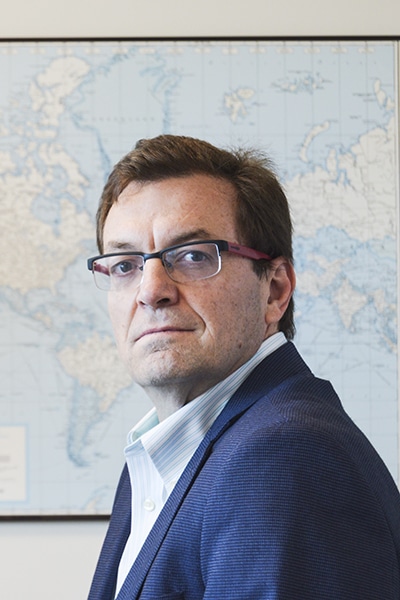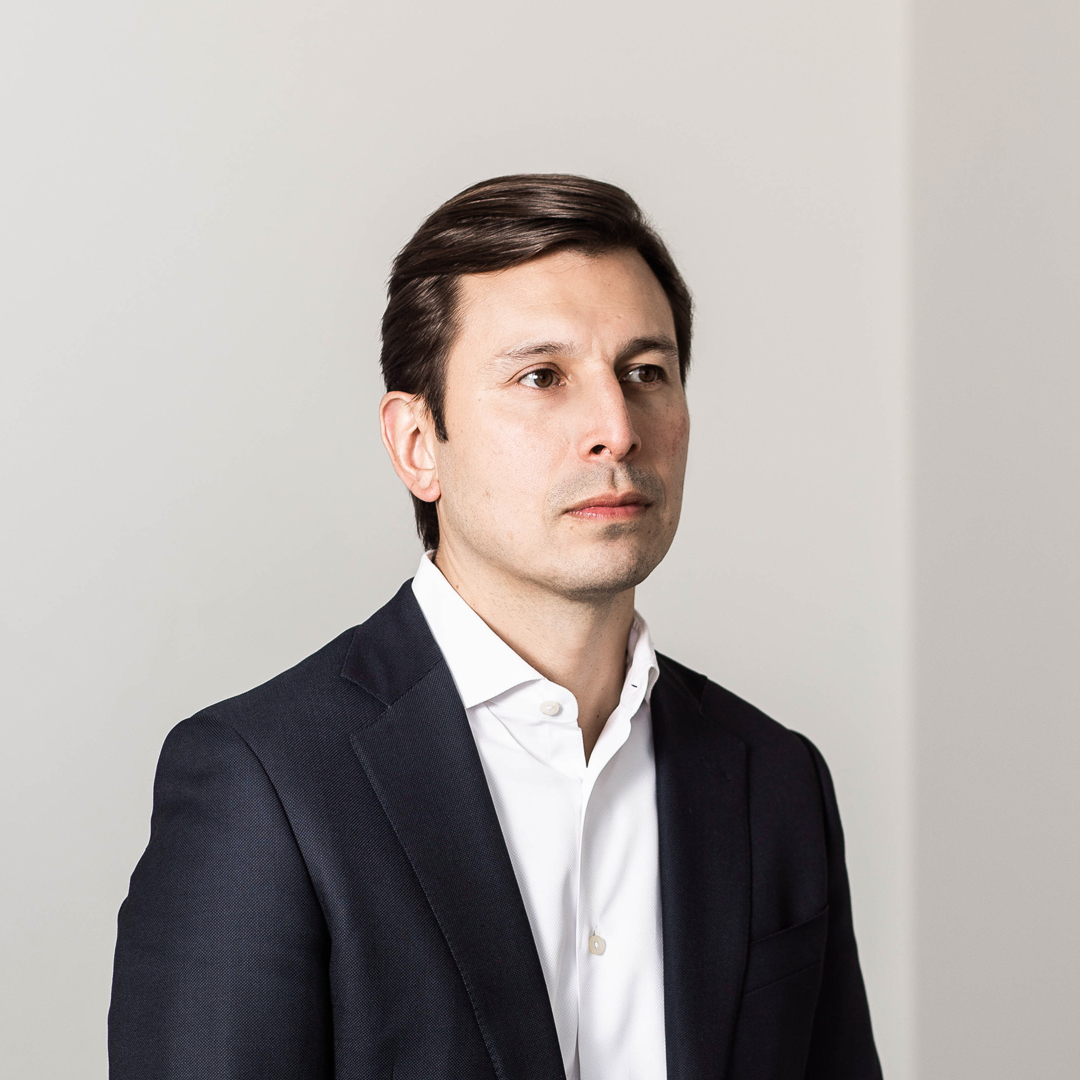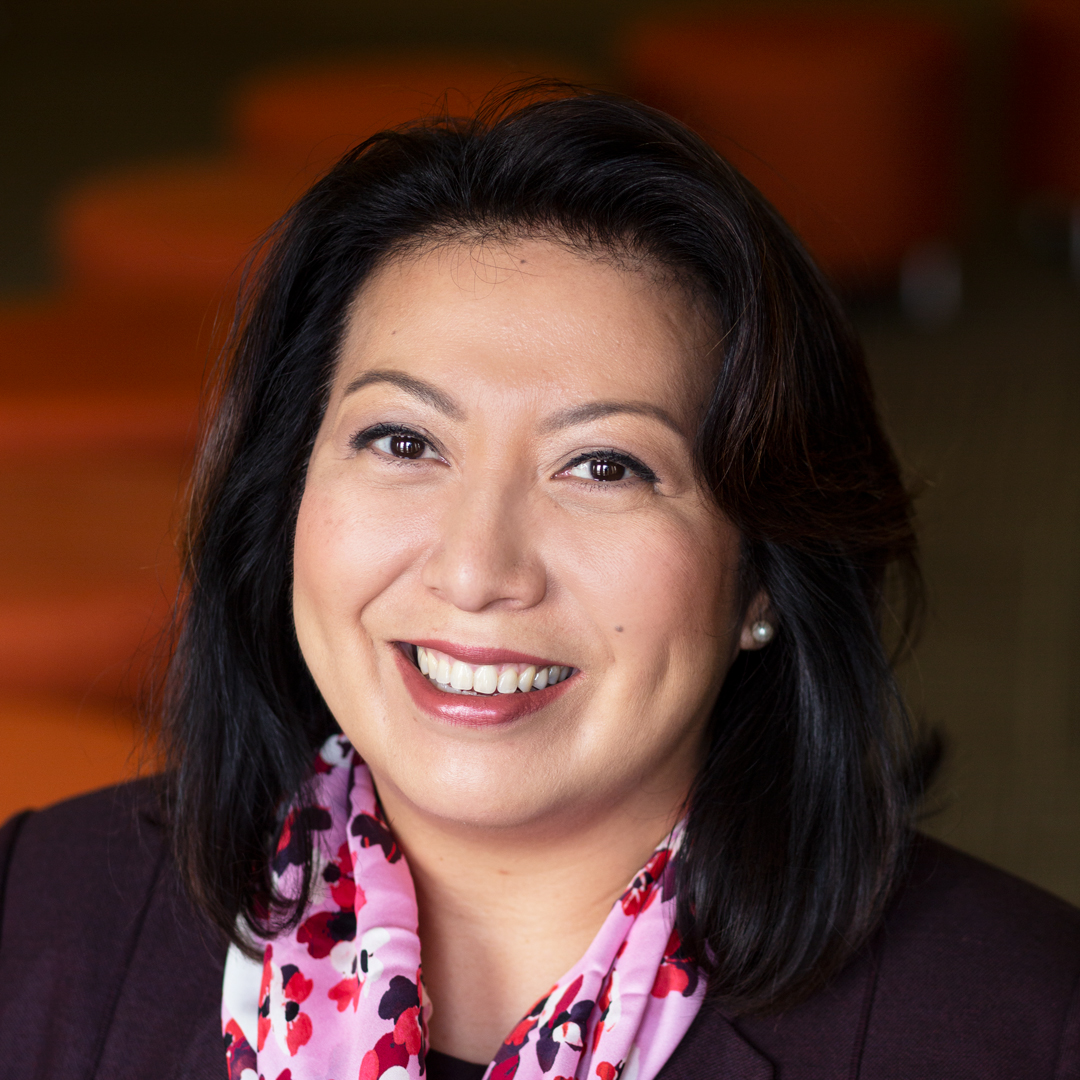|
Getting your Trinity Audio player ready...
|
Mark Ortiz—who was born in France to a Bolivian father and Polish mother, and who now has a Hungarian wife, a daughter born in the US, and a son born in Japan—can easily be described as worldly. He is also a strong believer in situational leadership: listen, adapt, and lead through empowerment and teamwork. His leadership style is rooted in his childhood experiences living and growing up in different countries, learning new languages and adapting to different cultures throughout multiple continents.
This upbringing may seem exotic, but for Ortiz, it wasn’t always easy.

One particular difficult time he remembers was when he was a high-school junior. Having moved every two or three years since he was six years old, he had just been told that his family was once again moving. He wouldn’t be finishing his education in Bolivia, the country—let alone the school—where he had started.
Ortiz had learned three languages already, as he had to adapt to whichever geographical location his father, a Bolivian diplomat, was assigned. He had lived in Brazil, Canada, Poland, and Bolivia, among other countries, and Ortiz would now have to learn English as the family prepared to move to the United States.
“I remember telling my parents that I would never, ever do that to my own children,” Ortiz says.
Fast-forward to adulthood: Ortiz’ second role at GE Capital had him working as an internal auditor across twenty different countries in three years. Reflecting back on what he said to his parents, he expresses, “Those are the last words I’d ever say now. Today, I thank my parents for giving me such amazing opportunities at a young age. And I now rely on the adaptability and support of my own wife and children, as my father did while I was growing up.”
Ortiz, now CFO of GE Capital Energy Financial Services, has spent his entire twenty-seven-year career under the GE umbrella—yet the diversity of his experience is second to none. The CFO has leveraged a talent for adaptability, forged first in his youth, into a leadership style that culls the best from his experiences worldwide—from Asia to Europe, Minnesota to Connecticut.
Sports also had a big impact on Ortiz. Early in his youth, he was the number one-ranked junior tennis player in Bolivia, and he says those experiences traveling around as part of a regional or national team mirrored those of his family—father, mother, brother—moving from country to country, having to rely on each other.
“In every role I’ve had at GE, I’ve been part of a team, and I’ve learned about the absolute importance of active listening,” Ortiz says. “People want to be understood, and so I think it’s so important that, even if you think you have the solution, be patient, and let them be genuinely heard—you will learn something new about the person or the subject matter.”
Ortiz first realized his cultural adaptability and relocation familiarity were assets in his early GE roles. Moving around frequently, he learned to quickly produce results, and in navigating multiple cultures he developed a depth of lens few possess.
“I think my perception of what’s right and wrong is a lot broader,” Ortiz says. “While still maintaining my own core values, it’s so much easier to understand others’ points of view, and that, sometimes, thinking someone is wrong is merely just a case of someone thinking differently from you.”
Ortiz’ first CFO role was in Japan, and he had to quickly adapt to a culture where age—not necessarily experience—demonstrates the extent of one’s career, and where consensus is paramount. “I was the only non-Japanese person on a 500-person team,” he recalls. “Things moved at a different pace than I was used to because there is such a stronger emphasis on building consensus. It was a very sobering experience.”
Later, Ortiz took on a CFO role with GE Capital’s Fleet Leasing division, covering all of Europe. “The experience in Japan helped me make sure that I was listening closely to each country’s CFOs, because their issues were so different,” he says. “Speaking four languages came in handy. Cultures, like the countries themselves, are so varied.”
“I call it situational leadership. Teams in different countries, cultures, and even functions have different needs and motivations and I’ve learned a lot from them; I’ve been able to adapt my style [and] become a better leader.”
One of Ortiz’ most profound learning experiences came when GE called him back to the United States to assume not a CFO role, but a global operational controller job. “My whole career, I thought I was preparing for bigger and bigger CFO roles, and I thought this might be the company telling me that this was as far as I was going to go,” he says.
But, soon he realized through his discussions with mentors and former managers that GE, again, was challenging him to adapt and take on a role outside his area of expertise. He could use his experience to tackle a whole new role within the company.
A very simple question from one of Ortiz’ mentor really struck him. “He asked me what the company leaders were telling me,” Ortiz says. “They were telling me that this position was a potential stepping stone for bigger roles and promotion and that they really like the work I’m doing.” Ortiz’ mentor then told him to trust the process and the company.
“That was a powerful lesson for me,” Ortiz admits. He says the controller job and subsequent roles that followed were some of the best jobs he ever had. Though “trusting the process” was sometimes difficult, Ortiz believes it was the right thing to grow both professionally and personally.
On his own leadership, Ortiz says that the steady stream of feedback he receives always includes how, regardless of the situation, Ortiz adapts. He’s come to see it as his own leadership style.
“I call it situational leadership,” Ortiz says. “Teams in different countries, cultures, and even functions have different needs and motivations and I’ve learned a lot from them; I’ve been able to adapt my style. Because of these teams and situations, I believe I have become a better leader.”
To this day, Ortiz stays true to those core values that were cast by his parents, on the tennis court, and at every new country’s border. With those values, he knows that no matter the location or the situation, he will thrive.

